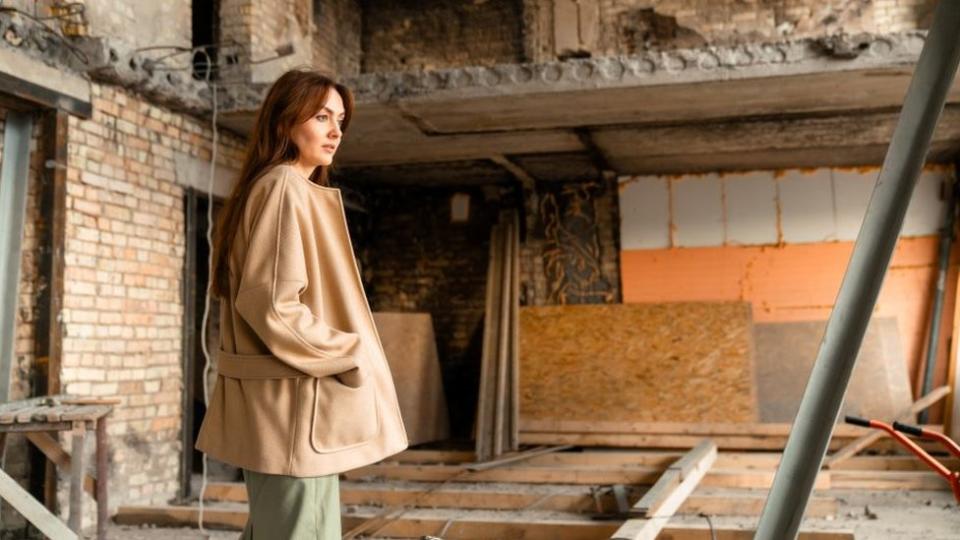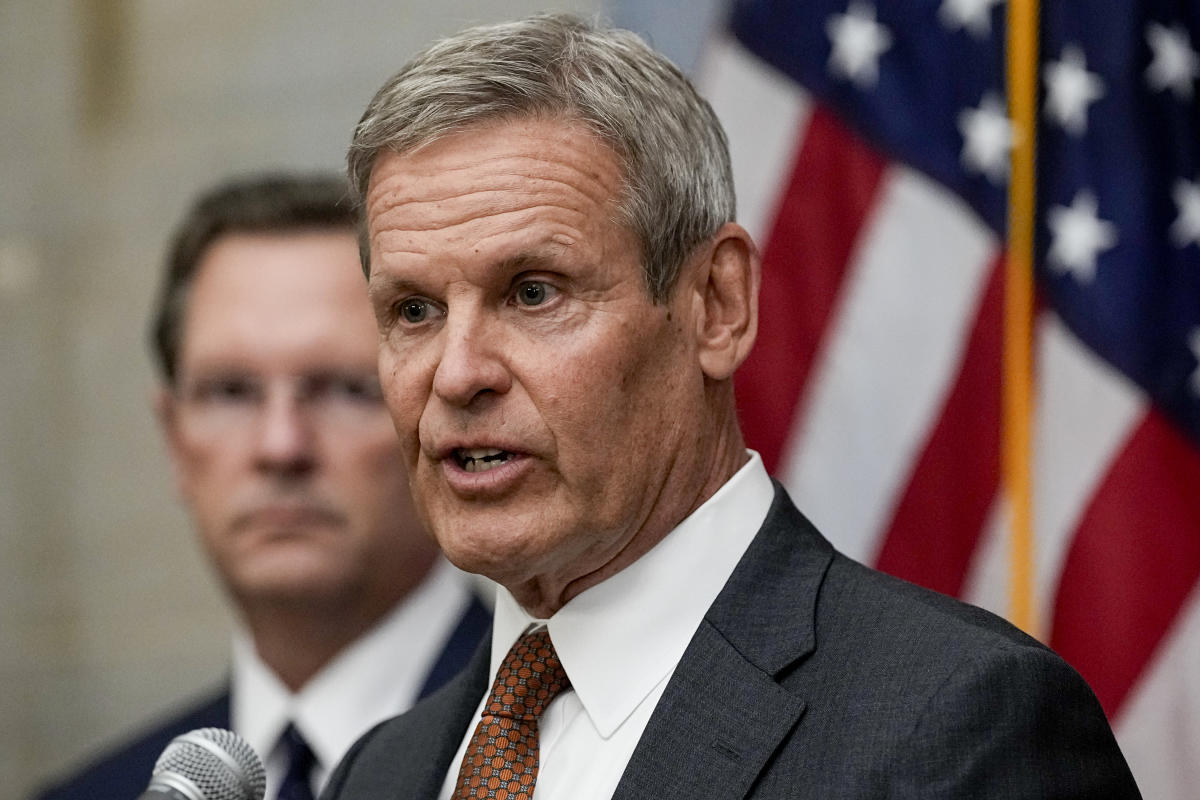Western donors have pledged billions to help rebuild Ukraine, a country with a reputation for high levels of corruption.
The task of reconstruction is expected to be the biggest of its kind since World War Two.
But the government hopes a flagship project in Bucha, a town shattered at the start of the war, will show new standards for transparency have been set.
At least 245,000 buildings are estimated to have been damaged or destroyed in Ukraine, including many homes in Bucha, just outside Kyiv.
Nearly two years ago, this town became a byword for some of the worst atrocities of Russia’s full-scale invasion. Russian occupying forces are accused of killing about 500 people.
A nine-storey Soviet-era block caught in the cross-fire between the two armies has become a building site.
Most of the 330 residents have gone, scattered across Ukraine or abroad, and they will only return when the work is complete next spring.
From a block I had thought was empty, a woman emerged from her damaged flat, its walls covered in scorch marks.
“They were bombing here for a month and everything got burnt,” said Anna Prokopyevna, who’s 71.
Extraordinarily, she stayed in her flat throughout the terrifying battle for Bucha.
In February this year, the World Bank calculated rebuilding Ukraine would cost $411bn (£325; €375). And there has been much more destruction since then.
International donors have voiced concerns about whether funds will be properly accounted for. The European Union has made the fight against corruption central to Ukraine’s bid to join the EU,
Ukraine was ranked 116th out of 180 countries in a 2022 corruption perceptions index by campaigning and research organisation Transparency International.
But the rebuilding of the Bucha apartments, one of the first housing projects of Ukraine’s new State Restoration Agency, is intended to show that the country can, in the agency’s words, “build back better”.
And that means not just more modern homes, designed according to residents’ wishes, but also projects funded, monitored and accounted for in the most open way.
“No country knows how to do reconstruction on the level needed here in Ukraine,” says Oleksiy Dorogan, chair of a coalition of civil society groups spearheading the drive for openness.
“We need to learn not only how to manage that; we also need to learn how to make it transparent.”
The stakes are high, because if the international community sees something amiss then he fears funding will dry up.
Before rebuilding began in Bucha, the Restoration Agency devised a new competitive bidding procedure for contracts.
Former investigative journalist Valeriya Ivanova is in charge of its anti-corruption measures and believes she can achieve more to tackle corruption “from the inside” than she could in her previous job.
But the team she used to work for, Bihus.Info, has produced a series of hard-hitting videos making serious allegations about earlier stages of rebuilding in Bucha and other nearby towns which were handled by local councils rather than her agency.
Hundreds of millions of Ukrainian hryvnia (equivalent to millions of dollars) “intended for reconstruction were distributed… mostly without tenders, competitions, or any oversight”, it alleged.
Taras Shafranskyi, secretary of Bucha town council, insists no violations were found by the state audit service and all the work was of high quality.
But reporter Olexiy Yarylchenko says the revelations have led to several officials in the region being dismissed. As a result there was no longer the kind of “exorbitant spending” seen in the year after Kyiv region was liberated of Russian forces, he said.
“Did it harm our reputation with international donors? I’m sure it did,” he said. “But we have to show this and draw lessons from it so it doesn’t happen again. If we stay silent, we’ll become a totalitarian state.”
Ukraine now has an online transparency platform called Dream, developed by the government and civil society organisations, which it believes will make it easier to spot possible corruption, without relying on whistle-blowing journalists.
The tool will allow anyone to key into any rebuilding project in Ukraine and find all the documents about how and why it was planned, who is behind it, who is implementing it, what their track record is – and exactly how much has been spent.

A new law to make its mandatory for all building is expected in the new year and the head of the Dream project, Viktor Nestulia, says it’s unique.
“The combination of all this data means you can analyse potential collusion and bid-rigging,” he told the BBC. It may not be a tool against corruption, but that will be its effect, he believes.
Ukraine’s anti-corruption efforts over recent years are beginning to make a difference. It is one of only 10 countries steadily climbing Transparency International’s ranking, rising 28 places in a decade.
There has been a series of high-profile sackings linked to an anti-corruption campaign by President Volodymyr Zelensky. The defence minister, his deputies, the heads of all regional military recruitment offices and the head of the Supreme Court have all lost their jobs.
Meanwhile, the defence ministry has gone back to publishing its tenders and contracts, as it did before the full-scale Russian invasion. That’s rare for any country at war.
The head of the State Restoration Agency says these are early days in Ukraine’s rebuilding process.
“The scale of destruction is so big that it will not happen in even five years,” says Mustafa Nayyem.
“We are talking about 25,000km of roads, more than 400 bridges which were destroyed.
“We have cities that were demolished. Seventeen percent of our country is still occupied. So now we are talking about the survival stage, something that can help us to proceed with this fight and win.”
As she walks around Bucha’s building site, Valeriya Ivanova from the Restoration Agency explains this is a project that will help prepare Ukraine for the future: “Because reconstruction is not just about rehousing people. It’s about who we will be after this war.”
Signup bonus from





